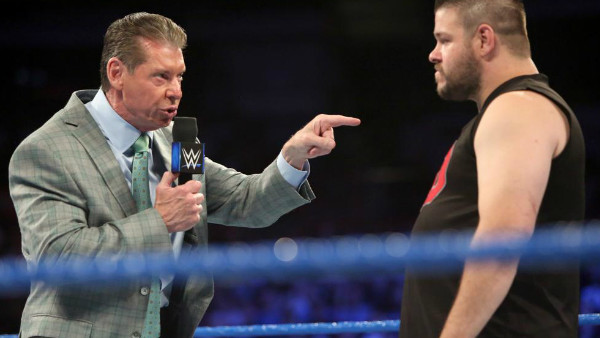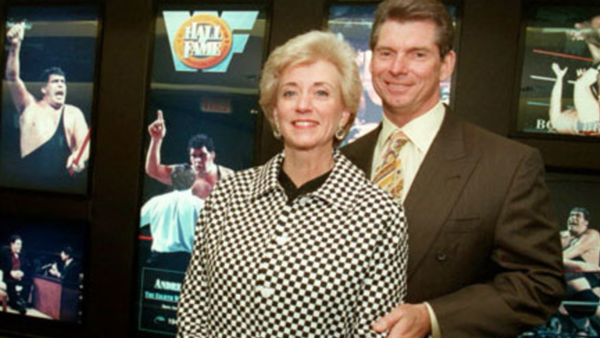10 Steps WWE Took To Become The Most Toxic Wrestling Company Ever
"We're not wrestling, Jim."

WWE is an astonishing entity.
It's often impossible to determine how it became the monopoly it exists as today. WWE actively resents its fanbase. It flaunts all acceptable workplace laws. At its very worst, it is a nightmare for fandom and personnel alike. While the recent philanthropic drive obscures it, the toxic underbelly, fattened through success and pressure, is a constant. Mauro Ranallo doesn't work 1,152 miles away in Florida because he enjoys the tax benefits.
This toxic culture, which rears its ugly head on an at-least annual basis, has much, nearly everything, to do with Vince McMahon. This is a man with a documented size fetish, a gutter-level sense of humour, a slave-driving work philosophy, and a documented aversion and or ignorance to otherness. He had to be made aware of the existence of Asian pornography to be convinced of signing Gail Kim in the early 2000s. That he couldn't believe men, even Asian men, found Asian women attractive is a complete indictment of the bubble in which he lives.
It's ironic; Vince McMahon has devoted his entire career to denying his existence as a wrestling promotor, desperately seeking mainstream acceptance - and it is the mainstream's disinterest in wrestling that has indirectly saved WWE - on multiple occasions - from harsh and potentially destructive scrutiny.
It is all born from what triggers all bullies: deep-rooted insecurity...
10. Expansion (National, Of Physique, And Of Underbelly)

The national expansion was essentially the World Wrestling Federation's Trinity test; it changed everything about the complexion of modern wrestling, and spewed the company's evil throughout the world.
The nuclear products that were the artificially-engorged muscle men of the WWF's golden age dominated North America and eventually, through the various, nascent cable and satellite revolutions, much of Europe. Artificial physiques were almost a prerequisite for a significant push - and while the grisly effects of long-term usage weren't known then, they were when performers began to drop like flies a decade or so later - and it took the most horrendous tragedy imaginable (or, more accurately, the devastating PR toll) for McMahon to formally abandon the culture.
Everything about the WWF was bigger, brighter and more bombastic than the floundering competition in the mid-to-late 1980s; by adding an intoxicating veneer of DayGlo glamour to the cult bloodsport, Vince McMahon, Jr elevated it into a mainstream concern. From the perspective of an armchair psychologist, this seemed to galvanise his inner megalomaniac. He wasn't yet arrogant enough to believe he was capable of building his house alone - he was astute enough to promote territory imports like Randy Savage and Ted DiBiase with the conviction latter day independent scene antecedents could only dream of - but he planted early red flags, nonetheless. Jesse Ventura's failed attempt at unionisation only served to add a more paranoid shade to the offscreen environment.
Terry Taylor, a star and a great worker in the UWF, was buried for the cocky way in which he strutted into the room. Vince sang when he was winning. Dusty Rhodes, a far bigger star, was fat and too synonymous with the NWA/JCP competition to portray with a modicum of dignity and adequacy - and he was buried even before he walked through the door via the conduits of Virgil and Akeem.
The mindset was always there. The company wasn't yet comfortable enough to cultivate the culture.